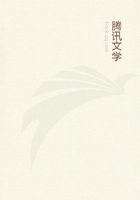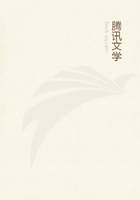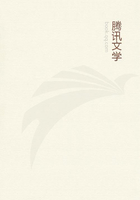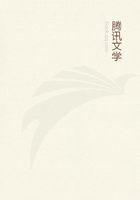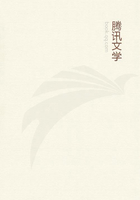From the battle of Agincourt (Oct. 1415) dates the second period of Charles's life. The English reader will remember the name of Orleans in the play of HENRY V.; and it is at least odd that we can trace a resemblance between the puppet and the original. The interjection, "I have heard a sonnet begin so to one's mistress" (Act iii. scene 7), may very well indicate one who was already an expert in that sort of trifle; and the game of proverbs he plays with the Constable in the same scene, would be quite in character for a man who spent many years of his life capping verses with his courtiers. Certainly, Charles was in the great battle with five hundred lances (say, three thousand men), and there he was made prisoner as he led the van. According to one story, some ragged English archer shot him down; and some diligent English Pistol, hunting ransoms on the field of battle, extracted him from under a heap of bodies and retailed him to our King Henry. He was the most important capture of the day, and used with all consideration. On the way to Calais, Henry sent him a present of bread and wine (and bread, you will remember, was an article of luxury in the English camp), but Charles would neither eat nor drink. Thereupon, Henry came to visit him in his quarters. "Noble cousin," said he, "how are you?" Charles replied that he was well. "Why, then, do you neither eat nor drink?" And then with some asperity, as I imagine, the young duke told him that "truly he had no inclination for food." And our Henry improved the occasion with something of a snuffle, assuring his prisoner that God had fought against the French on account of their manifold sins and transgressions. Upon this there supervened the agonies of a rough sea passage; and many French lords, Charles, certainly, among the number, declared they would rather endure such another defeat than such another sore trial on shipboard. Charles, indeed, never forgot his sufferings. Long afterwards, he declared his hatred to a seafaring life, and willingly yielded to England the empire of the seas, "because there is danger and loss of life, and God knows what pity when it storms; and sea-sickness is for many people hard to bear; and the rough life that must be led is little suitable for the nobility:" (1) which, of all babyish utterances that ever fell from any public man, may surely bear the bell. Scarcely disembarked, he followed his victor, with such wry face as we may fancy, through the streets of holiday London. And then the doors closed upon his last day of garish life for more than a quarter of a century. After a boyhood passed in the dissipations of a luxurious court or in the camp of war, his ears still stunned and his cheeks still burning from his enemies' jubilations; out of all this ringing of English bells and singing of English anthems, from among all these shouting citizens in scarlet cloaks, and beautiful virgins attired in white, he passed into the silence and solitude of a political prison.
(2)
(1) DEBATE BETWEEN THE HERALDS.
(2) Sir H. Nicholas, AGINCOURT.
His captivity was not without alleviations. He was allowed to go hawking, and he found England an admirable country for the sport; he was a favourite with English ladies, and admired their beauty; and he did not lack for money, wine, or books; he was honourably imprisoned in the strongholds of great nobles, in Windsor Castle and the Tower of London. But when all is said, he was a prisoner for five-and-twenty years. For five-and-twenty years he could not go where he would, or do what he liked, or speak with any but his gaolers. We may talk very wisely of alleviations; there is only one alleviation for which the man would thank you: he would thank you to open the door. With what regret Scottish James I. bethought him (in the next room perhaps to Charles) of the time when he rose "as early as the day." What would he not have given to wet his boots once more with morning dew, and follow his vagrant fancy among the meadows? The only alleviation to the misery of constraint lies in the disposition of the prisoner. To each one this place of discipline brings his own lesson. It stirs Latude or Baron Trenck into heroic action; it is a hermitage for pious and conformable spirits. Beranger tells us he found prison life, with its regular hours and long evenings, both pleasant and profitable. THE PILGRIM'S PROGRESS and DON QUIXOTE were begun in prison. It was after they were become (to use the words of one of them), "Oh, worst imprisonment - the dungeon of themselves!" that Homer and Milton worked so hard and so well for the profit of mankind. In the year 1415 Henry V. had two distinguished prisoners, French Charles of Orleans and Scottish James I., who whiled away the hours of their captivity with rhyming. Indeed, there can be no better pastime for a lonely man than the mechanical exercise of verse. Such intricate forms as Charles had been used to from childhood, the ballade with its scanty rhymes; the rondel, with the recurrence first of the whole, then of half the burthen, in thirteen verses, seem to have been invented for the prison and the sick bed. The common Scotch saying, on the sight of anything operose and finical, "he must have had little to do that made that!" might be put as epigraph on all the song books of old France. Making such sorts of verse belongs to the same class of pleasures as guessing acrostics or "burying proverbs." It is almost purely formal, almost purely verbal. It must be done gently and gingerly. It keeps the mind occupied a long time, and never so intently as to be distressing; for anything like strain is against the very nature of the craft. Sometimes things go easily, the refrains fall into their place as if of their own accord, and it becomes something of the nature of an intellectual tennis; you must make your poem as the rhymes will go, just as you must strike your ball as your adversary played it. So that these forms are suitable rather for those who wish to make verses, than for those who wish to express opinions.

